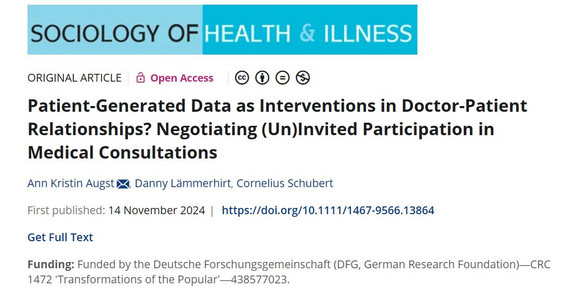New publication on patient-generated data

Abstract:
Health data generated by apps and devices are increasingly popular and expected to affect various aspects of doctor-patient relationships. No longer confined to medically authorized and certified health technologies, a range of biomedical data-from heart rate to blood pressure or oxygen saturation-are captured and processed by consumer health devices. This article outlines different responses of physicians to patients collecting data with popular consumer devices and considers how the data may challenge or reify medical authority. Based on semi-structured interviews with doctors and chronically ill patients in Germany from 2021 to 2023, we compare cases from diabetes, sleep disorders, cardiovascular conditions, obesity and ME/CFS and explore when, how and for what reasons different medical specialists consider patient-generated data (PGD) from consumer devices in outpatient settings. Their response registers vary: whereas some physicians reject PGD that seem to compete with their diagnostic activities, others tolerate the data (collection), whereas still others more readily include them into their diagnostic practices. This suggests nuanced strategies for navigating the demarcation between accepting or rejecting 'uninvited' participation through PGD from consumer apps and devices.
Link to the text (Open Access) at: Sociology of Health & Illness.





